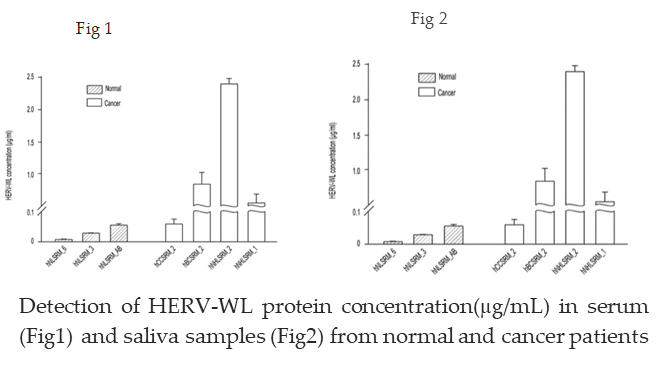
Invention Summary:
Human endogenous retroviruses (HERVs) constitute 8% human genome and are inherited remnants of retroviral integrations in the human genome. Despite being evolutionarily dysfunctional, some cells can code proteins due to epigenetic dysregulation during malignant transformation in cancer or during HIV infection, autoimmune and multi-factorial diseases. Thus, implying to be a useful asset leading to cancer cell recognition.
Rutgers researchers have cloned Human endogenous retroviral protein (HERV-WL) from human B cell lymphoma cells and expressed in E.coli to produce rabbit polyclonal and mouse monoclonal antibodies. HERV-WL is a secreted cancer associated antigen that provides non-invasive detection capabilities. HERV-WL antibodies can detect the expression of the antigen by cell surface and intracellular staining methods. Therefore, the present invention thus allows differential screening to identify healthy cells from cancerous cells. Overall, the invention focusses on implementing HERV-WL as diagnostic and screening tool for cancer in human tissues, serum, and saliva.
Market Applications:
- Non-invasive screening test for cancer-associated antigens in saliva
- Development of immunotoxins targeting cancer cells
- Development of cancer diagnostic tests
Advantages:
- Detects tumor associated antigen
- Early detection of malignant cells
- Non-invasive procedure
Intellectual Property & Development Status:
Patent issued US 10,370,417 B2. Available for licensing and/or search collaboration. For any business development and other collaborative partnerships contact marketingbd@research.rutgers.edu.